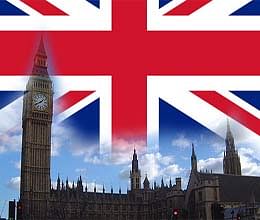
In the aftermath of the murder of an Indian pupil and issues like stringent policies and depreciating currency, the United Kingdom witnessed a 21 per cent drop in study visas issued to Indians in 2013.
The European country issued only 13,608 study visas to Indian nationals in 2013, which is 21 per cent lower than the earlier year, it said.
“I don't think anyone has one single answer to that. Some of it may be to do with myths. They think that there is a limit on the number of Indians who can come to Britain to study, they think it is difficult to get a student visa, they think that they cannot work after study,” British High Commissioner to India James Bevan told reporters here on Wednesday.
He was replying to a query on the reasons for the dip in the visas granted, after inauguration of a new visa centre in the city.
In 2013, Britain received 14,762 applications across all education sectors, which was 27 per cent lower than the same received in 2012, with the university sponsored applications which constitute a bulk of the category, falling by 7 per cent to 12,832.
Notably, the dip in numbers came after Anuj Bidve, a native of Maharashtra''s Pune, was shot dead by a local factory worker near Manchester on December 26, 2011.
“Such instances are very, very rare. Britain is a very safe country for everybody including students, including Indian students,” Bevan said, assuaging any concerns.
Bevan gave a slew of statistics which show the country''s importance when it comes to granting of visas by the UK, including occupying the top rank among all the countries in the visas issued.
In 2013, Britain issued a total of 400,000 visas to Indians, which is 5 per cent higher than previous year and Bevan said he expects the growth to continue.
Over 90 per cent of the applications received get the visas, he said, clarifying that Britain does not look at India as a high risk country as some reports had stated.
“We look at each country on its merit. In each country, there might be some category of high risk individuals, but that would apply worldwide. India is not seen as a high risk country,” he said.
On the controversy over having a visa bond, Bevan said that the proposal has been junked. “There is no bond, there will not be a visa bond,” he said.
The European country issued only 13,608 study visas to Indian nationals in 2013, which is 21 per cent lower than the earlier year, it said.
“I don't think anyone has one single answer to that. Some of it may be to do with myths. They think that there is a limit on the number of Indians who can come to Britain to study, they think it is difficult to get a student visa, they think that they cannot work after study,” British High Commissioner to India James Bevan told reporters here on Wednesday.
He was replying to a query on the reasons for the dip in the visas granted, after inauguration of a new visa centre in the city.
In 2013, Britain received 14,762 applications across all education sectors, which was 27 per cent lower than the same received in 2012, with the university sponsored applications which constitute a bulk of the category, falling by 7 per cent to 12,832.
Notably, the dip in numbers came after Anuj Bidve, a native of Maharashtra''s Pune, was shot dead by a local factory worker near Manchester on December 26, 2011.
“Such instances are very, very rare. Britain is a very safe country for everybody including students, including Indian students,” Bevan said, assuaging any concerns.
Bevan gave a slew of statistics which show the country''s importance when it comes to granting of visas by the UK, including occupying the top rank among all the countries in the visas issued.
In 2013, Britain issued a total of 400,000 visas to Indians, which is 5 per cent higher than previous year and Bevan said he expects the growth to continue.
Over 90 per cent of the applications received get the visas, he said, clarifying that Britain does not look at India as a high risk country as some reports had stated.
“We look at each country on its merit. In each country, there might be some category of high risk individuals, but that would apply worldwide. India is not seen as a high risk country,” he said.
On the controversy over having a visa bond, Bevan said that the proposal has been junked. “There is no bond, there will not be a visa bond,” he said.









